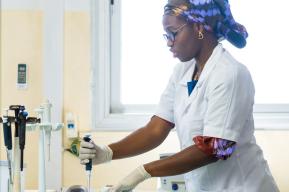News
Promoting sustainable development through UNESCO’s programmes and sites across Europe and North America: 5 new sites selected

The primary objective of the project is to work through UNESCO designated sites - Biosphere Reserves, Global Geoparks and Natural World Heritage sites to implement Sustainable Development Goals, notably SDG 6 (Clean water and sanitation), SDG 13 (Climate action), SDG 14 (Life below Water) and SDG 15 (Life on land).
The project pursues 3 main interconnected expected results in each site:
- research, focusing on biodiversity, nature-based solutions, ecosystem services, water, the ocean, and the climate;
- Education for Sustainable Development, water education, Ocean Literacy and climate change education, in collaboration with schools in the sites;
- innovative ‘green’ and ‘blue’ solutions for sustainable development, climate change mitigation and adaptation involving key stakeholders such as local businesses, NGOs and youth.
Launched in March 2022, the project is now entering its second cycle. The call for applications for the second cycle was published this March. All submitted project proposals were evaluated against the published criteria. The evaluation and selection process of the applications comprised an eligibility check, as well as a 3-level assessment conducted by an evaluation team composed of specialists in the sectors of science, education, and culture from the UNESCO Regional Bureau for Science and Culture in Europe.
The shortlisted sites were reviewed in May by the Advisory Board composed of representatives from UNESCO and abrdn Charitable Foundation (aCF). The 5 winning proposals for the second-year cycle are:
- “Study of exchanges between Karst and rivers in the Célé valley”, Causses Du Quercy UNESCO Global Geopark (France)
- “Reducing occurrence of forest fires in National Park Durmitor and Tara River Basin”, Durmitor National Park (Montenegro)
- “Sustainability at work! Research and community driven action for sustainable development in the Hațeg Country UGGp”, Hațeg Country UNESCO Global Geopark (Romania)
- “Whole Farm Plans for Agricultural Natural Capital Resilience: Audit Methodology”, Galloway and Southern Ayrshire Biosphere Reserve (United Kingdom)
- “An Atlas of Climate & Environmental Change for Champlain-Adirondack and Frontenac Arch Biosphere Networks”, Champlain-Adirondack Biosphere Reserve (United States of America)
Each selected site project will be allocated $25,000, over a 12-month project duration.
The projects will be presented during a launch event for the project’s second cycle on 6 September 2023 at the UNESCO Regional Bureau in Venice, Italy. The event will bring together the new sites of the second year, as well as those from the first-year cycle, a good opportunity for all participating sites to practise peer learning and knowledge sharing.
The impressive results achieved so far are indicative of the positive impact that can be obtained through collaborative efforts between UNESCO’s scientific programmes – the Man and Biosphere (MAB) Programme, the Intergovernmental Hydrological Programme (IHP), and the Intergovernmental Oceanographic Commission (IOC) – and its extensive networks of UNESCO designated sites. Throughout the second-year cycle, UNESCO will continue to work with the selected new sites to ensure that the expected results fit within priority areas of UNESCO’s scientific programmes, and can be scaled up as best practices at the regional and global levels.





